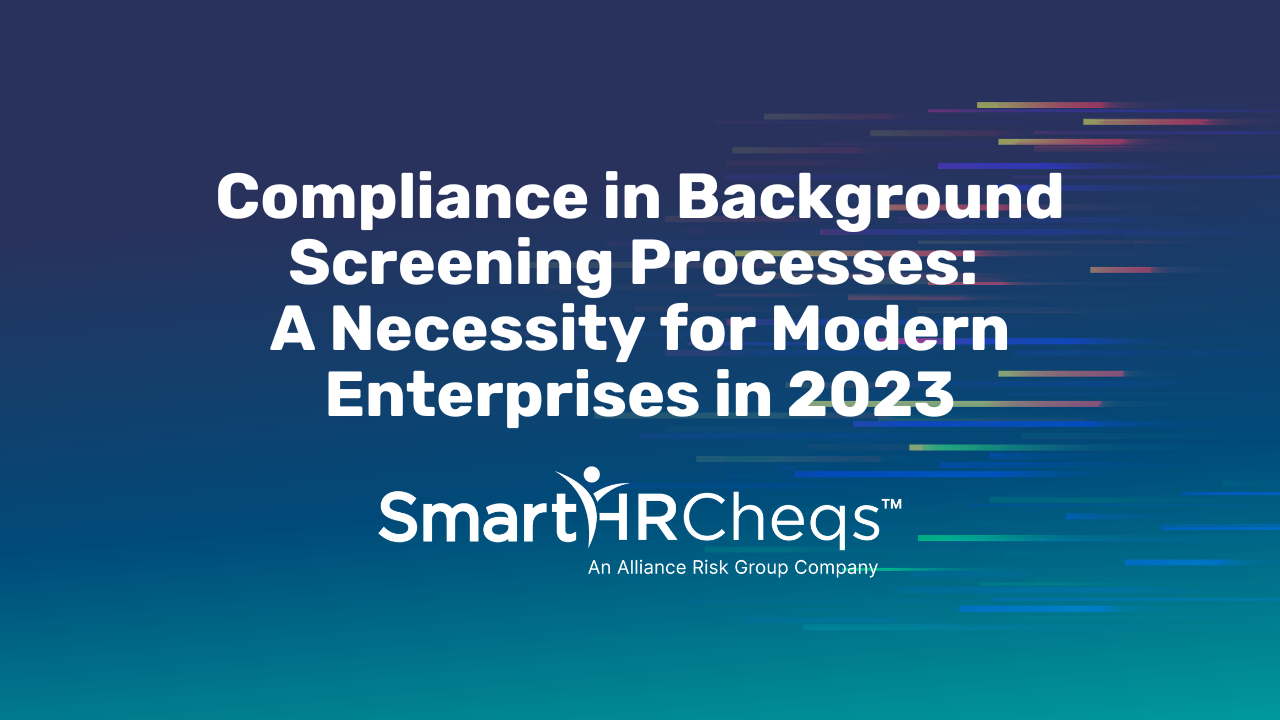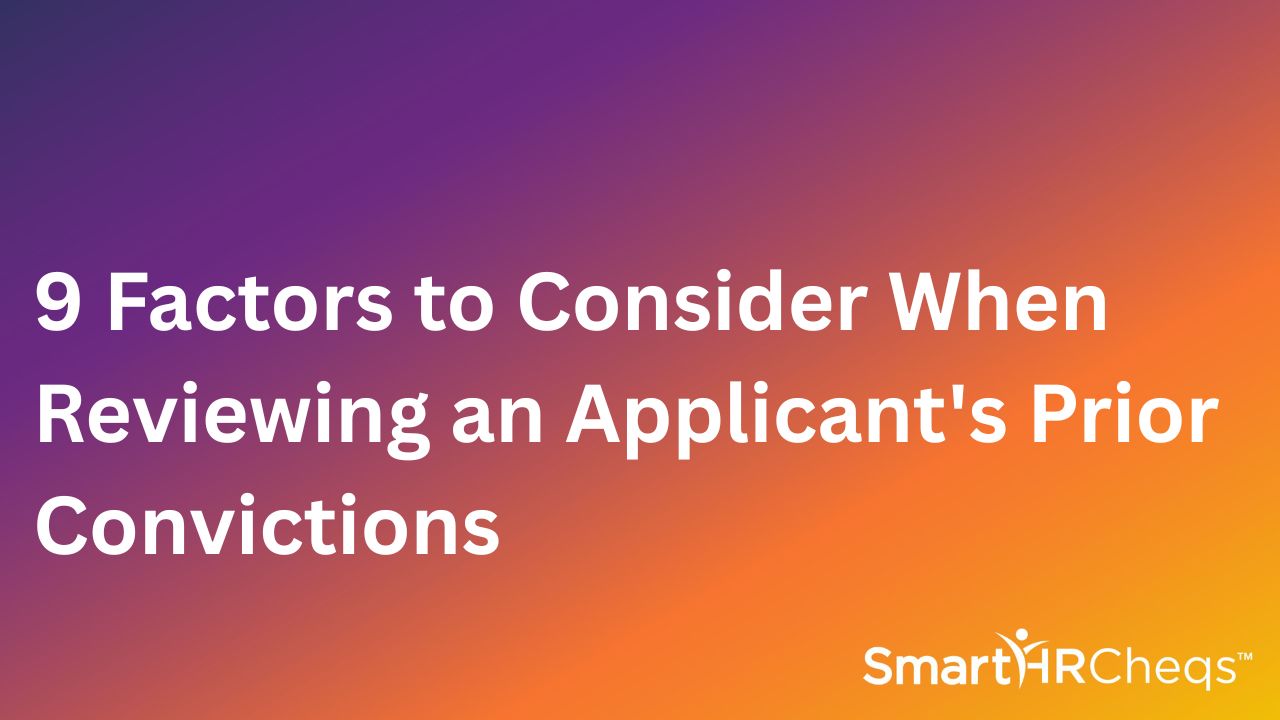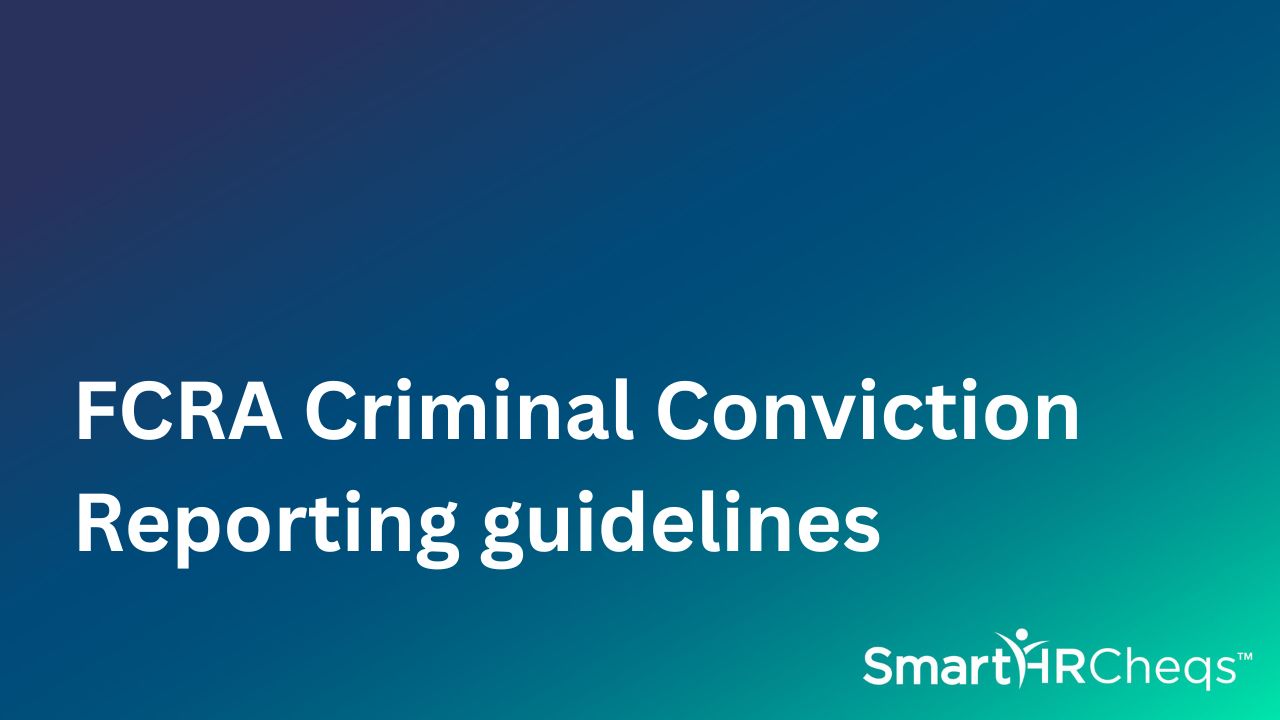The Importance of Ensuring Compliance in Background Screening Processes:
Background screening is an integral part of an organization’s employment process because it assists in hiring the right candidates with good character and integrity. However, these screenings should be performed carefully within legal boundaries to avoid any potential discrimination or invasion of privacy claims from disgruntled applicants or employees.
Employers need to tread lightly during their compliance in background screening processes by ensuring adherence to various federal and state laws that protect individuals’ rights. These include The Fair Credit Reporting Act (FCRA), Equal Employment Opportunity Commission (EEOC) guidelines, and Title VII of the Civil Rights Act.
Read on to unpack each of these laws and their implications to ensure you are following best practices when it comes to your compliance in background screening processes:
1) Understanding the Fair Credit Reporting Act (FCRA):
The FCRA is a federal legislation that sets the standards for employment background checks. It requires employers to obtain written consent from applicants or employees before conducting a background check. The employer must also inform the individual if any adverse action (such as not hiring or firing) will be taken based on information found in these reports. Having a communication process for reporting these findings is critical to ensure compliance in background screening processes.
Employers have another obligation under this act: they must provide copies of these reports and allow disputes over inaccurate information. Violating FCRA regulations could result in hefty fines, legal fees, and potential class-action lawsuits.
2) Equal Employment Opportunity Commission (EEOC) Guidelines:
The EEOC provides guidelines to prevent discrimination during hiring and can assist during your compliance in background screening processes. Employers are prohibited from using certain types of information discovered during a background check against job applicants, such as race, color, national origin, sex, religion, or disability status.
Any use of criminal history needs to be relevant to the job at hand and cannot unfairly affect minorities. Failure to adhere can lead to allegations of discriminatory hiring practices resulting in penalties imposed by EEOC or civil litigation.
3) Title VII of the Civil Rights Act:
Title VII prohibits employment discrimination on several bases, including race, color, religion, sex, or national origin. Employers should be wary while conducting background checks to ensure they don’t violate this act.
For instance, implementing blanket policies that exclude individuals with criminal records may disproportionately impact certain racial or ethnic groups and could lead to a Title VII violation.
4) State Laws Governing Background Screening:
Apart from federal laws, employers must also comply with specific state laws governing compliance in background screening processes. Some states have “ban-the-box” statutes prohibiting asking about criminal history until later in the hiring process. Others limit the type of information an employer can seek through a background check.
ADP: A Compliance Failure Case Study (Why was compliance in background screening processes not utilized?):
ADP’s recent trouble in this area is a key example of the consequences that can arise if certain measures and precautions are not taken when ensuring compliance in the background screening processes. The company’s background-check screening arm is facing a lawsuit from a Connecticut job seeker who claims the company wrongly reported he was a convicted drug dealer, causing him to lose a job offer.
The plaintiff had applied for a part-time patient coordinator role at a dental practice that used ADP Screening and Selection Services for its background checks. While ADP’s own software found no criminal records, it reported four convictions based on information from an external vendor.
According to coverage of the incident via HR Drive, the lawsuit has been proposed as a class action representing individuals who have disputed inaccurate background check results returned by ADP to employers.
ADP allegedly conducts more than 10 million background checks annually and claims an accuracy rate of 99 percent or above, a possible 100,000 incorrect reports could be filed each year. Hundreds of thousands of people could fall within the class definition.
The plaintiff and potential class members are seeking statutory damages between $100 and $1,000, and of course, there are punitive damages and legal costs to consider. In other words – these situations can be incredibly costly and should be avoided with due diligence.
Compliance in Background Screening Processes is Key to Risk Mitigation:
Employers must stay updated and informed about their obligations under these complex legal frameworks for managing compliance in background screening processes effectively. This may involve seeking legal counsel or partnering with reputable third-party screening providers well-versed in such regulations.
Background screenings are no doubt critical tools for making sound hiring decisions. However, it’s essential for companies to understand that these processes come paired with hefty responsibilities towards compliance and fairness.
As we’ve seen with ADP and many others before it, an oversight here could cost more than just financial loss; it can severely damage a company’s reputation as well. Keep your background checks above board with our compliant and reliable services here at Alliance Risk Group.
9 Factors to Consider When Reviewing an Applicant’s Prior Convictions
9 Important Factors to Consider When Reviewing an Applicant’s Prior Convictions Employers face many challenges in making the best hiring…
FCRA Criminal Conviction Reporting guidelines
Understanding Criminal Conviction Reporting Guidelines Navigating criminal conviction reporting can be complex, especially with varying federal, state, and local regulations.…
Los Angeles DOB Redaction – Updates for 2024
Los Angeles DOB Redaction The Los Angeles Superior Court has announced that “effective close of business February 23, 2024, the…



